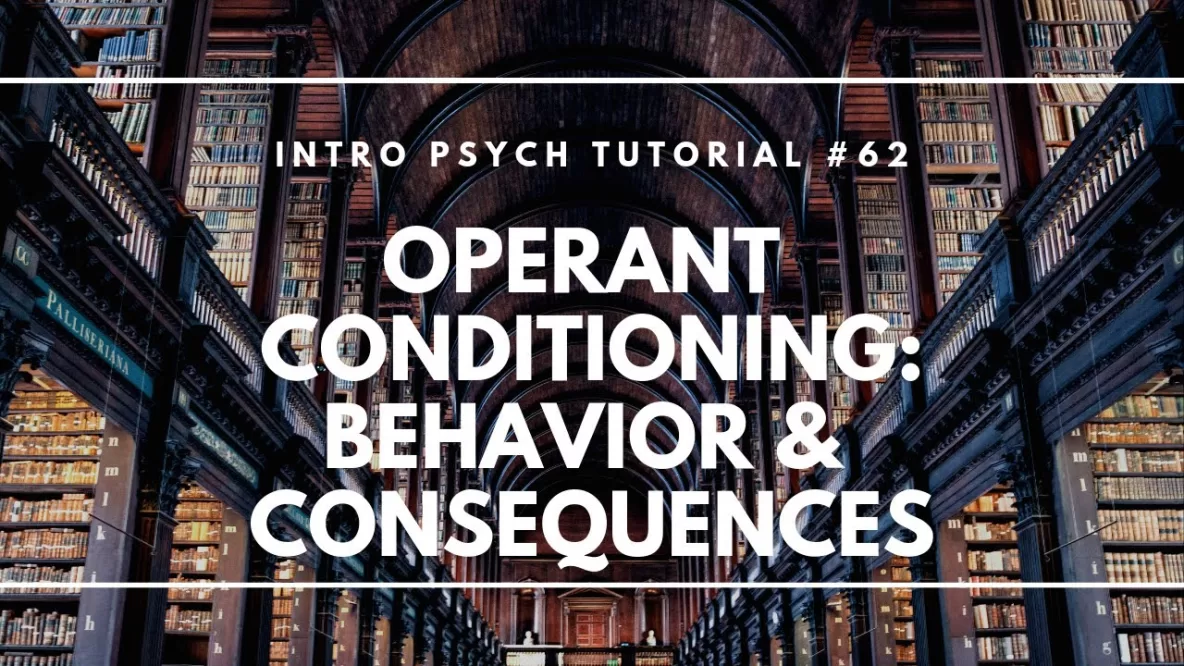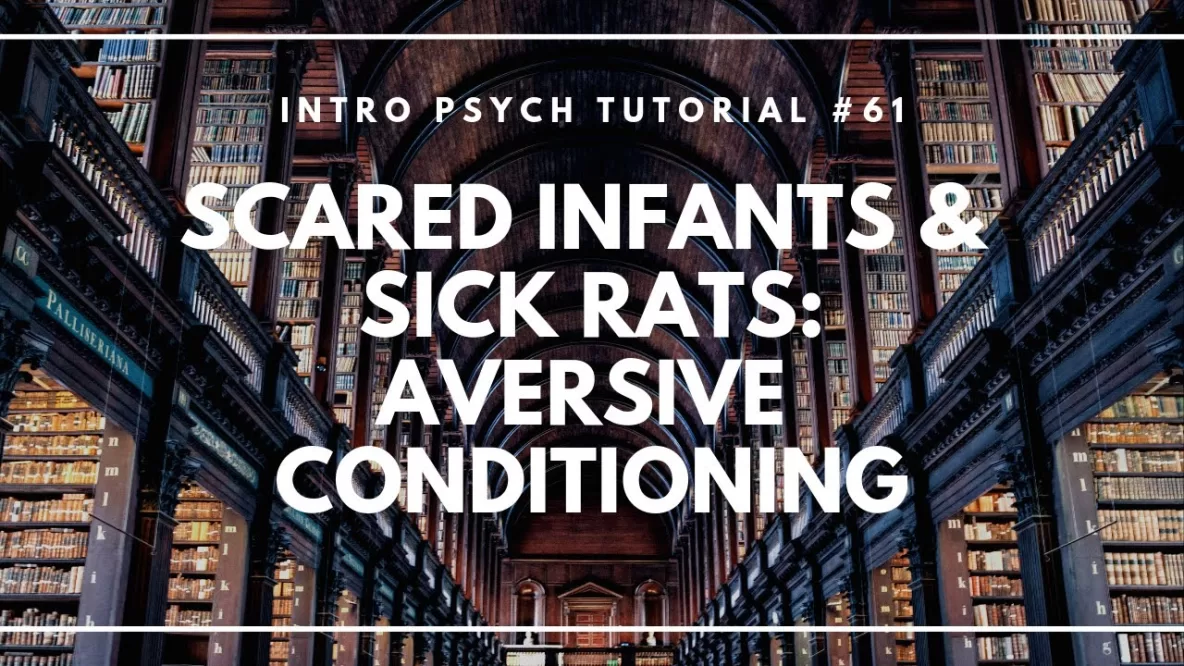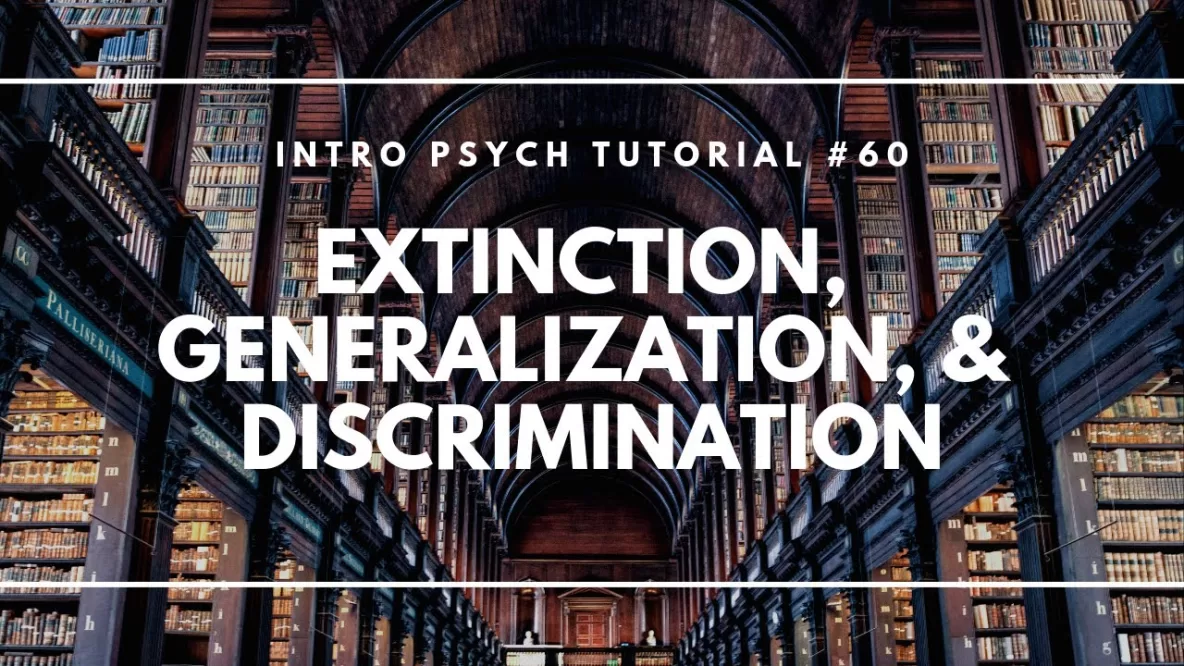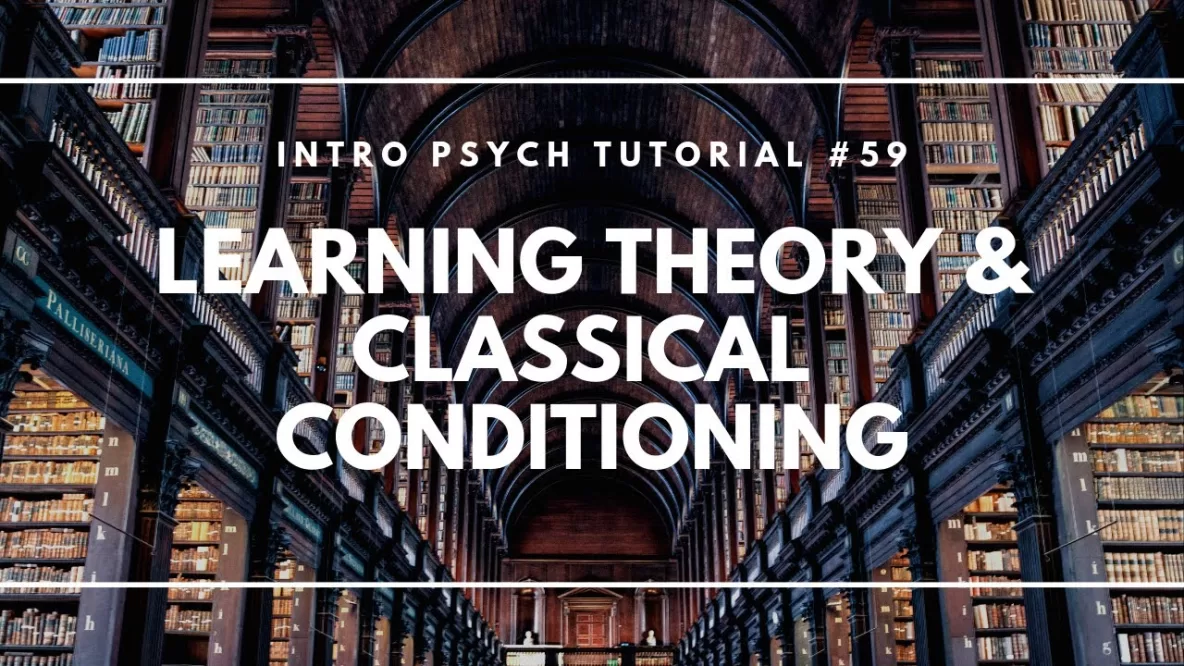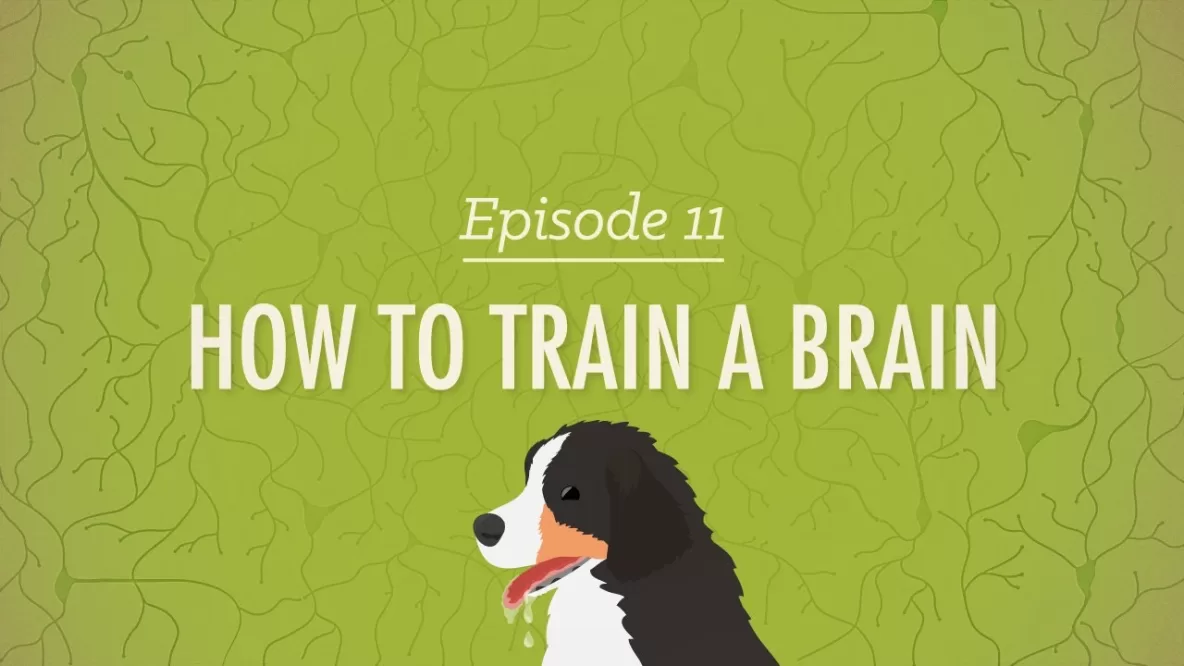In this video I explain the difference between classical conditioning and operant conditioning. Next I explain Thorndike’s work with cats in puzzle boxes which led to his Law of Effect. This approach was greatly expanded by B.F. Skinner’s work on operant conditioning which distinguished primary and secondary reinforcers, as well as positive and negative reinforcement and positive and negative punishment. … Read More
Scared Infants and Sick Rats: Aversive Conditioning
In this video I explain two examples of aversive conditioning; John Watson’s “Little Albert” study pairing presentation of a rat with a loud noise, and John Garcia and Robert Koelling’s work on learned taste aversions in rats. Taste aversions demonstrate our biological preparedness for some learning, which allows us to learn certain types of associations more easily than others. Don’t … Read More
Extinction, Generalization, and Discrimination
In this video I explain some other terminology for describing aspects of classical conditioning including acquisition, extinction, spontaneous recovery, stimulus generalization, stimulus discrimination, and second-order or higher-order conditioning. Don’t forget to subscribe to the channel to see future videos! Have questions or topics you’d like to see covered in a future video? Let me know by commenting or sending me … Read More
Classical Conditioning
In this video I introduce learning theory and the basic concepts of behaviorism. This begins with the work of Ivan Pavlov on classical conditioning and covers the basic vocabulary for discussing this type of learning including neutral stimulus, unconditioned stimulus, unconditioned response, conditioned stimulus, and conditioned response. Don’t forget to subscribe to the channel to see future videos! Have questions … Read More
Operant Conditioning – Schedules of Reinforcement
By closely monitoring the occurrence of behaviors and the frequency of rewards, Skinner was able to look for patterns. Receiving a reward each time the lever is pressed would be an example of continuous reinforcement. But Skinner also wanted to know how behavior might change if the reward wasn’t always present. This is known as intermittent reinforcement (or partial reinforcement). … Read More
Learning Theory Resources
On this page you’ll find a number of resources for understanding the key concepts of learning theory, including classical conditioning, operant conditioning, observational learning, and more. If I’ve missed a good resource, please share it in the comments section! General Resources Learning Theory Key Terms Learning Theory Pinterest Page OpenStax Learning Chapter Master Introductory Psychology Volume 2 (Amazon link) General … Read More
Key Terms for Learning Theory
Download a free pdf of this key terms list here: Learning-Key-Terms Find explanations and examples of all of these key terms and more here: Master Introductory Psychology: Complete Edition learning behaviorism classical conditioning Ivan Pavlov neutral stimulus unconditioned stimulus unconditioned response conditioned stimulus conditioned response acquisition extinction … Read More
Alzheimer’s Simulation
This ABC news segment shows two people undergoing a simulation to represent the difficulties that Alzheimer’s sufferers face. While Alzheimer’s is often mentioned in intro psych classes and textbooks in the context of acetylcholine function in learning, concentration, and memory, these brief descriptions fail to reveal just how profound the effects of this disease are for sufferers and their families. … Read More
- Page 2 of 2
- 1
- 2

